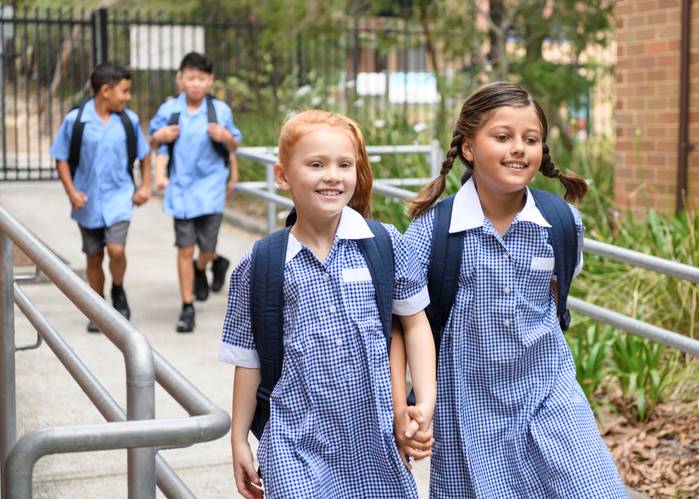Teaching resilience is simple with the help of the Peer Support Program. Primary school students who participate in the program have an opportunity to develop skills to better navigate life’s obstacles.
Today’s kids face a unique set of challenges. With the advent of technology and an abundance of information, they are navigating a landscape vastly different from that of previous generations. But there’s good news: resilience can be nurtured and developed in our youth.
Our resilience module – Moving Forward – is an evidence-based approach to helping students build the resilience they need to thrive during primary school and beyond. The eight-week module was launched more than 10 years ago and has been run in hundreds of schools since then.
Don’t avoid challenges: Support kids to effectively manage them
Resilience has long been a topic of interest and research, but our understanding of it has evolved. Resilience is no longer thought of as merely the absence of adversity. Instead, it’s now recognised as the result of effectively navigating life’s obstacles.
As parents and caregivers, our natural instinct may be to shield our children from challenges, but it’s essential that we equip them to face these challenges head-on while providing the support they need.
Schools play a vital role in teaching resilience
Schools can foster resilience. Yes, a significant portion of a child’s resilience development happens within the family, but schools can provide an environment that encourages and promotes resilience.
Peer interactions, teacher support, and meaningful participation opportunities, all contribute to the growth of resilient characteristics in students.
The Peer Support Program teaches resilience in a school setting. The peer groups include students in small groups of students from Foundation/Kindergarten to Year 5, and are led pairs of Year 6 students with teachers supervising. This creates a safe and inclusive environment, empowering students to practise the skills they’re learning. It also nurtures cross-grade peer relationships, helping to create a sense of belonging for students in the playground too.
Moving Forward helps students develop protective factors
Resilience isn’t a one-size-fits-all concept. It’s a developmental process influenced by a myriad of protective factors.
Protective factors act as a buffer against the development of mental health issues or the deterioration of existing ones. They are essentially strengths or positive influences that can enhance a person’s resilience and mental wellbeing.
We can build our protective factors internally – who we are – and externally – our surrounding environment. Strong protective factors help us better deal with stress and adversity. Our Moving Forward module is built on the belief that resilience can be cultivated by recognising protective factors and calling on our ‘toolkit’ when facing challenges.
Students learn how to recognise their own strengths, develop strategies to deal with challenges, and build a support network. As students grow, they become more self-reliant, better at problem-solving, and refine their personal beliefs and attitudes.
Our resilience module encourages students to proactively work through challenges, enabling them to emerge stronger.
Teaching resilience is more than bouncing back from adversity
At Peer Support Australia, we base our resilience module, Moving Forward, on the three foundations identified by The International Resilience Project: “I am, I can, and I have.” These form our resilience toolkit.
The module addresses three questions:
- Who I Am? Students learn to recognise their personal qualities and strengths, applying them to various aspects of their lives while reflecting on their attitudes and actions.
- What I Can Do? Students identify essential skills that help them manage challenging situations. These include communication, acknowledging achievements, and understanding the transferability of these skills empowers students to face new challenges.
- Who I Have? Students are encouraged to seek support when navigating challenging situations, utilising knowledge, skills, and strategies while recognising the need for external support when necessary.
The module emphasises the importance of relationships and the ability to learn from past experiences.
Resilience isn’t a destination; it’s a journey that unfolds over time and through experiences. Moving Forward encourages students to think critically and practise resilient responses collaboratively. By nurturing resilience, we not only provide students with protective factors but also empower them to navigate life’s challenges with confidence and independence.
Boost student wellbeing in your primary school
Get actionable insights and strategies on how to improve the wellbeing of your primary school students, with this free ebook.





